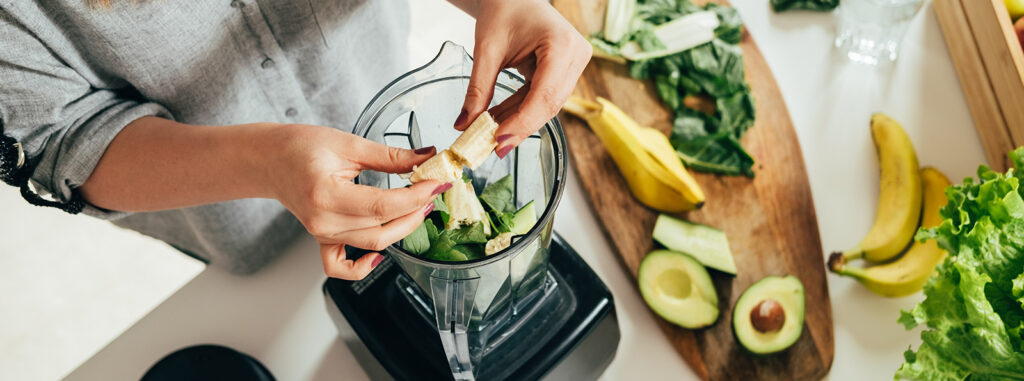ARTICLE AT A GLANCE
Alex McMahon
The health industry is inundated with so much information that it can be nearly impossible to tell who is steering you in the right direction. One day, saturated fat is your worst enemy. A few days later, a new study provides contradictory evidence. It’s enough to make your head spin.
When enough conflicting information circulates, people stop questioning its veracity and begin to accept whatever jibes with their habits as the absolute truth. This becomes particularly problematic when bad information is introduced into the mix.
This widespread information can do quite a bit of harm — both physically and psychologically — to people who believe it. This week, we’re going to bust the four most harmful myths and misconceptions about fat loss. We’ll also help you learn to avoid these traps in the future.
Myth No. 1: Fat Loss Is Linear

Your body’s fat loss progress does not go in a straight line from where you begin to the results you want to achieve — that’s not how your body works. It will adapt as it loses fat, leading to stalls and plateaus that cause some people to abandon lifestyle changes.
Unrealistic expectations about fat loss can fool you into believing your approach isn’t working. This can cause frustration and confusion, leading people to hop from diet to diet without results. Most people begin making progress again shortly after a stall. You simply have to be patient and stick with it long enough to figure that out.
Myth No. 2: Smaller, More Frequent Meals Boost Your Metabolism
Any food in any frequency boosts your metabolic rate due to its thermic effect (the amount of energy your body needs to break down and digest food). With equal calories and macronutrients, it doesn’t matter whether you eat three meals or six meals. Your body digests and absorbs the same amount of food and experiences the same metabolism boost regardless of your eating frequency.
Emphasizing the “more meals” part instead of the “equal nutrients” part is responsible for making this belief mythical for some people. Preparing so many meals every day of the week can be a pain, and people will sometimes eat even when they aren’t hungry because of a misguided belief that it’s better for them.
Myth No. 3: Fats and/or Carbohydrates Are All Bad

Some people have metabolic or genetic dispositions that make it more difficult to tolerate fats and carbohydrates. That said, fats and carbs have their crucial roles in any well-balanced nutrition plan. Fats enable your body to absorb vitamins A, D, E, and K, and they’re vital for hormonal balance. Carbs fuel your body and help it recover from intense exercise.
Fear-mongering around carbohydrates and fats has led people to think of specific macronutrients in clear-cut terms of good or bad. Without enough fat in your diet, however, you can experience constant hunger or suffer from hormonal and mood swings. Too few carbs in your diet can lead to metabolic and thyroid problems, higher stress hormones, digestive issues, and nutrient deficiencies. The key is understanding the timing, amount and quality of these macros and how it is unique to you.
Myth No. 4: More Is Always Better, Especially With a Calorie Deficit

Many people want the quickest route to fat loss, but aggressively cutting calories in a bid for fast results is a common mistake. This sort of unsustainable approach never works as advertised, and it typically leads to weight gain when people return to normal eating habits. Lasting, healthy weight loss takes time and patience, with plenty of small adjustments along the way to break through plateaus.
A too-aggressive calorie deficit for too long can cause higher stress hormones, water retention, decreased libido, fatigue, and less-effective workouts. Instead, focus on eating as much as you can while losing fat at a steady rate.
Letting Go of the Myths
With the vast amount of information available at our fingertips these days, knowing what to ignore is as important as knowing what to believe. Whether it’s bad information you know is false or myths you’ve long believed to be true, letting go of these harmful ideas is an important step in improving your health and weight loss. Embrace the truths of healthy, sustainable fat loss instead of falling prey to the flashy promises of fads and diets that don’t work.
First, remember to expect fluctuations. Ups and downs are typical of any weight loss journey, and changes to your routine should be based on long-term trends rather than daily snapshots. Don’t judge yourself by the number on the scale, either. Take progress pictures and measurements every couple of weeks, ideally on the same day of the week and under similar conditions (e.g., in the morning after using the restroom).
Find a meal frequency that works for you (and that you can stick to for the foreseeable future). If you enjoy eating smaller meals throughout the day, feel free to take that approach. But if your lifestyle is more conducive to two or three larger meals each day, it shouldn’t hurt your fat loss goals, provided you maintain an equal and healthy intake of vital nutrients.
Finally, eat a well-balanced diet that incorporates plenty of variety. Don’t demonize specific macronutrients like carbs and fats; focus on eating a healthy balance of all essential minerals and nutrients. Eat plenty of plants every day — especially the colorful ones — and consume adequate protein at meals from an array of sources. Eat healthful fats at meals for better health and taste, and consume nutrient-dense carbohydrates such as sweet potatoes, root vegetables, and quinoa.
Nobody gains excess fat overnight, and it takes more than a few days of healthy choices to undo years of bad habits. The expectation of losing weight in the blink of an eye will only lead to desperation and an inability to stick to your game plan. Exercise caution when devising a fat loss strategy, and embrace the reality that losing weight is a long-term project if you want to maintain your results.






